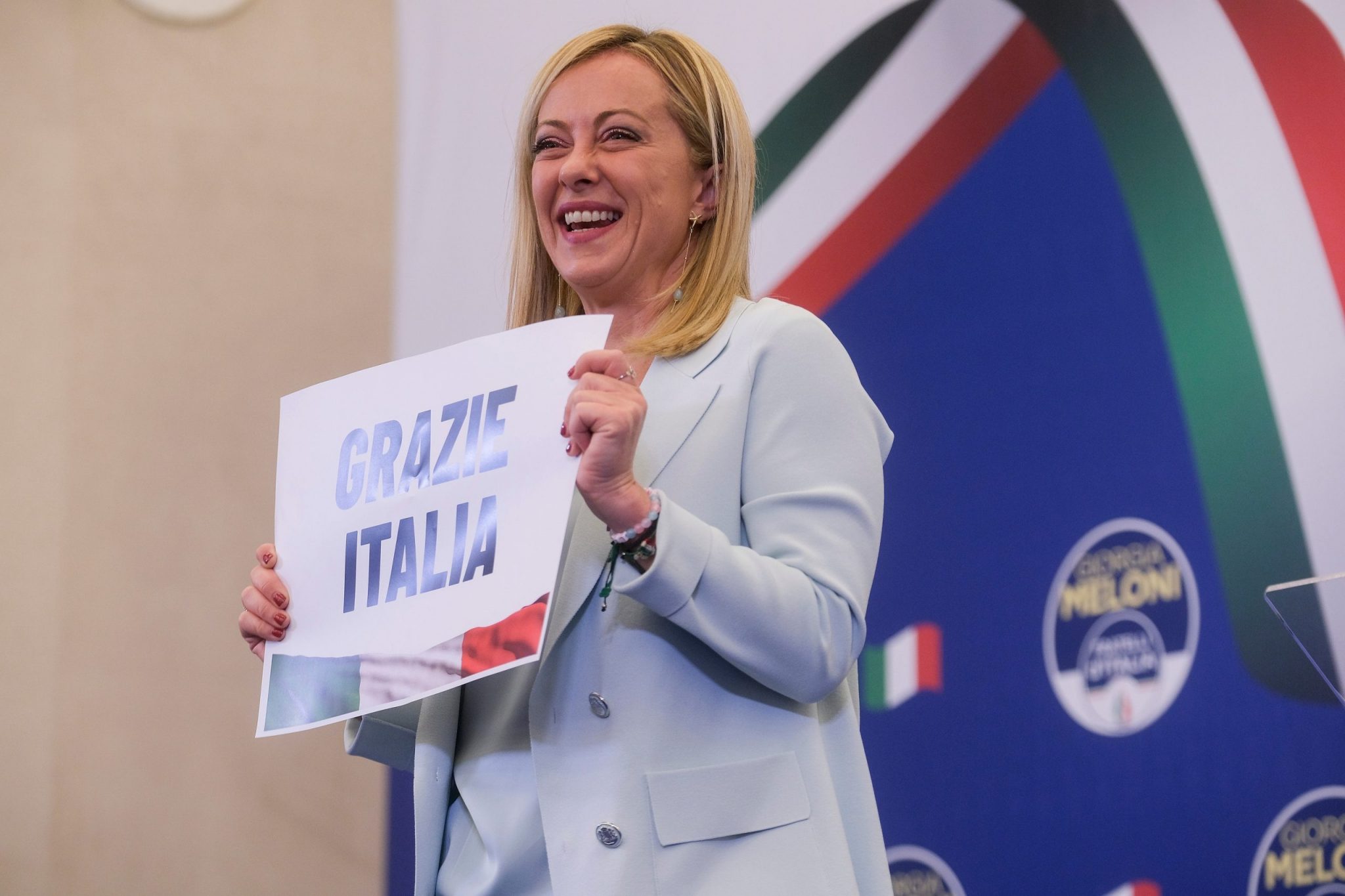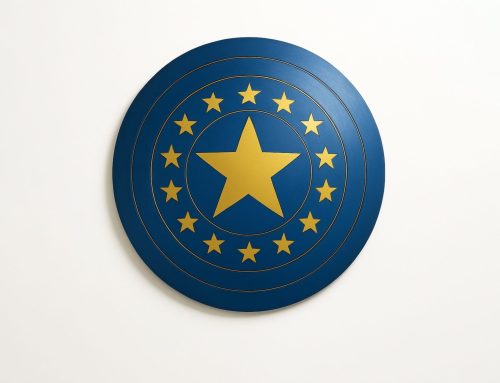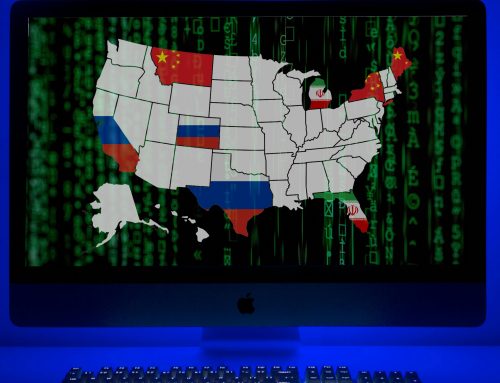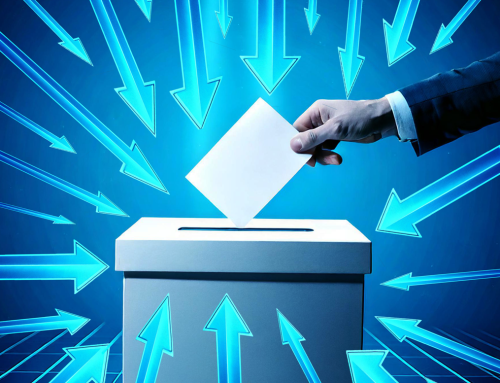Federico Castiglioni is a Researcher working in the program “EU, politics and institutions” at the Istituto Affari Internazionali (IAI). Etienne Soula is a research analyst at the Alliance for Securing Democracy as the German Marshall Fund of the United States (GMF). This article was jointly published by the Istituto Affari Internazionali and the Alliance for Securing Democracy. Views expressed are the authors’ alone.
Introduction
After a snap election on 25 September, Giorgia Meloni’s far-right Brothers of Italy party (Fratelli d’Italia – FdI) emerged as the first political force in Italy. Together with Matteo Salvini’s League party (Lega) and Silvio Berlusconi’s Go Italy (Forza Italia – FI), the right-wing coalition is now heading Italy’s new government as the country enters a turbulent winter.
Amidst the cascading effects of Russia’s war on Ukraine, soaring energy prices and rampant inflation negatively impacting the whole EU, the foreign policy outlook of the Union’s third-largest economy will be particularly important over the coming months. Italy’s policies towards Moscow, as well as the government’s approach to allies in Brussels and Washington, will be critical to maintaining a united front against Russia’s aggression while preserving European cohesion on sanctions and military support for Ukraine.
A Clear Victory for the Right
Meloni’s party secured 26 per cent of the vote, while her two main coalition partners only obtained about 8 per cent each.1 This unbalance within the coalition is consistent with the history of the Italian right, with voters traditionally converging on a single leader while leaving coalition partners to collect the crumbs.
As a result of a 2017 reform to Italy’s electoral law, the right-wing coalition obtained almost 60 per cent of seats in parliament despite having won less than 45 per cent of the national vote. Conservatives now hold more than 230 seats out of the 400 available in the lower chamber and 116 out of 200 in the senate, giving the coalition an unprecedented majority.2
Thanks to their strong results in the election, Brothers of Italy are the main force in the new government. Giorgia Meloni is now Italy’s Prime Minister, and her party’s co-founder Guido Crosetto heads the Ministry of Defence. However, it’s still unclear how, if at all, Meloni intends to adjust Italy’s foreign policy. In addition, both the League and Forza Italia have secured key ministries in the new government, notably the Ministry of Economy and Finance and the Ministry of Foreign Affairs, meaning that they too will have a say on the country’s policies towards the rest of the world.
Moscow’s Long Shadows
A founding member of both NATO and the EU, Italy’s positioning towards a revisionist power in Moscow has acquired a renewed sense of importance now that war is once again raging in Europe. Ties between Russian and Italian political elites date back decades, centuries even.3 Without going back so far, each party in the current right-wing coalition is to some extent enmeshed with Russian interests.
Of the three coalition partners, Berlusconi’s FI party is the one with the oldest ties to the Kremlin. During his time as Italian prime minister, Berlusconi developed a personal friendship with Vladimir Putin. Under the auspices of this relationship, Italy’s Eni and Russia Gazprom developed a “strategic alliance” that covered the joint construction of a pipeline across the Black Sea, as well as cooperation in drilling, transportation and personnel training.4 Around the same period, leaked diplomatic cables from the United States revealed that there were rumours that Berlusconi may have been personally profiting from these contracts.5
Closer to the present, following the Russian invasion of Ukraine, it took the former Italian leader more than one month to publicly condemn Russia’s invasion, saying in April that he was “deeply disappointed and saddened” by his erstwhile friend.6 Since then, Berlusconi has regularly equivocated. In late May, he argued that Europe should “try to persuade Ukraine to accept Putin’s demands”.7 On the eve of the vote, Berlusconi said on live TV that Putin was “pushed” into the conflict and was simply trying to replace the Ukrainian government with “decent people.8 In mid-October, the former Prime Minister once again landed the coalition in hot water by blaming the war on “Ukrainian resistance” and by boasting that he had exchanged “very sweet letters” and bottles of alcohol with Vladimir Putin.9 With Forza Italia occupying the Foreign Ministry in the new government, the ties that still bind Berlusconi to the Kremlin could be deemed problematic.
Salvini’s League party has equally problematic connections to the Kremlin. In 2019, Italian investigative journalists revealed that Russia had reportedly offered a senior League member 3 million euro to finance the party’s European Parliament election campaign.10 Besides, the League leader has a long history of pro-Putin statements.11 Following the Russian invasion, he initially appeared to recant his earlier positions, affirming that his “opinion about Putin has changed”.12 However, in the months that followed, Salvini came under fire for considering a diplomatic trip to Moscow that was to be funded by the Russian embassy in Rome and loudly questioned the effectiveness of Western sanctions on Russia. As of October 2022, a 2017 cooperation deal between the League and Putin’s United Russia remains in force.
Given this configuration, the possibility of Russian interference came up several times in the run-up to the election. At the beginning of the campaign, US officials raised concerns about possible Russian covert actions in friendly countries, for instance the financing of newspapers or parties.13 While this was officially denied by Italian authorities, the parliamentary body supervising the Italian intelligence services later acknowledged the presence of pro-Russian fake news in some Italian publications.14
This revelation followed a report disclosed in May by the Italian agency for intelligence which assessed several actions and campaigns aimed at (mis)representing the Ukrainian conflict.15 Fears of Russian meddling never fully dissipated throughout the campaign. The day before Berlusconi defended Putin’s attempt to replace the Ukrainian government with “decent people”, the Russian Embassy in Rome had published a tweet with photos of Putin meeting past Italian prime ministers with the caption “we have a lot to remember”.16
Compared to her two coalition partners, Giorgia Meloni has been far clearer in her support for Ukraine. During the campaign, she fully endorsed Prime Minister Mario Draghi’s decision to ship weapons to Kyiv. Since the election, she has reiterated her stance and even promised “her full support” for Ukraine in a phone call with Ukrainian President Volodymyr Zelensky.17 She was also quick to distance herself from Berlusconi’s latest pro-Putin statements.18 While there are some lingering international doubts about the sincerity of what is perceived as a rapid change to a pro-NATO and pro-EU positioning during the campaign, most commentators expect Brothers of Italy to stay the course on Ukraine.19
The Risk of Disunity
Expressing strong support for Ukraine despite wobbly partners, the main risk Giorgia Meloni’s foreign policy may present is for the EU’s internal cohesion. Following the victory by Brothers of Italy, Meloni’s traditional allies in Poland and Hungary remained mostly silent, even as Italian newspapers revealed how momentous her election was for those governments.
On the other hand, Meloni’s critics were far more vocal, both before and after the vote. In the run-up to the election, President of the European Commission Ursula von der Leyen commented that her institutions had “tools” to intervene should “things go in a difficult direction” in Italy.20 In early October, French European Affairs Minister Laurence Boone said that her country would “be very attentive to respect of values and regulations of the rule of law” in Italy.21 Both of these statements were met with widespread condemnations in Italy, and not only from Meloni’s camp.
More generally, the new Italian government has announced its intention to adopt a more confrontational stance vis-à-vis Brussels, most notably on economic policy. Meloni never hid her dissatisfaction with the Recovery plan, and regularly criticised the ECB’s restrictive monetary policy, as well as the lack of European solidarity on energy policy. On many European matters, she believes that Italy can “make its voice heard loudly” and has ambitious plans to increase the country’s leverage relative to its European partners.
On energy, despite environmentalists’ opposition, the new government plans to ramp up the exploitation of underwater natural gas deposits to reduce its reliance on Europe. Other actions intended to improve Italy’s bargaining position in Brussels are the strengthening of relations with foreign investors, most notably the United States, and with energy producers, especially in the MENA region and Africa. However, a more proactive foreign policy in these regions runs the risk of increasing friction with other established powers active there, notably France and Turkey.
Meloni will also likely try, as Berlusconi did in his time, to play Washington – and NATO – against Brussels. However, Italy’s right-wing coalition is unlikely to find much sympathy with the current Democratic administration, and the Republicans’ underwhelming performance in the midterms will make it harder for Meloni to gain more traction on the other side of the Atlantic in the short term.
In addition, the new Italian government’s plans to improve its bargaining position in the EU will likely be undermined by the country’s macroeconomic fundamentals. Lack of growth, heavy debt, the huge disparity between North and South, and ageing infrastructure all limit Meloni’s room for manoeuvre. Finally, differing perceptions of the threat presented by Russia is but one of the many topics of potential disagreement that could splinter the current coalition and lead to an abrupt end of Meloni’s tenure. These issues – more than foreign policy – are likely to be the real focus of her attention over the next years.
- Detailed election results in Italian Ministry of Interior website: Politiche 25 settembre 2022, last updated on 28 September 2022, https://elezioni.interno.gov.it/eligendo/20220925.
- Ibid.
- Hannah Roberts, “Italy and Russia: A Love Affair That Hasn’t Quite Ended”, in Politico, 6 April 2022, https://www.politico.eu/?p=2049631.
- Emran Hussain, “Eni and Gazprom Extend Strategic Alliance”, in Oil & Gas Middle East, 28 December 2010, https://www.oilandgasmiddleeast.com/?p=11372.
- Rob Evans, Luke Harding and John Hooper, “WikiLeaks Cables: Berlusconi ‘Profited from Secret Deals’ with Putin”, in The Guardian, 2 December 2010, https://www.theguardian.com/p/2ygfb.
- Stephen Jewkes, “Italy’s Berlusconi ‘Deeply Disappointed and Saddened’ by Putin”, in Reuters, 9 April 2022, https://www.reuters.com/article/us-ukraine-crisis-berlusconi-putin-idAFKCN2M10EE.
- From an AFP dispatch, “Berlusconi’s Bad Break-up with Putin Reveals Italy-Russia Ties”, in France 24, 28 May 2022, https://www.france24.com/en/live-news/20220528-berlusconi-s-bad-break-up-with-putin-reveals-italy-russia-ties.
- Matt Murphy, “Silvio Berlusconi: Ex-PM Defends Russian War on Eve of Italian Election”, in BBC News, 23 September 2022, https://www.bbc.com/news/world-europe-63005402.
- “Berlusconi, il nuovo audio: ‘La guerra è colpa della resistenza ucraina’. E i deputati di FI applaudono. Meloni: ‘Chi non condivide l’atlantismo è fuori dal governo’” [New audio from Berlusconi: ‘The war is the fault of the Ukrainian resistance’. FI representatives applaud. Meloni: ‘Those who do not share Atlanticism are outside the government’], in la Repubblica, 19 October 2022, https://www.repubblica.it/politica/2022/10/19/news/berlusconi_audio_guerra_ucraina_putin_zelensky-370745694.
- Giovanni Tizian and Stefano Vergine, “Quei 3 milioni russi per Matteo Salvini: ecco l’inchiesta che fa tremare la Lega” [Russia’s 3 million for Matteo Salvini: the investigation that makes the League tremble], in L’Espresso, 21 February 2019, https://espresso.repubblica.it/plus/articoli/2019/02/21/news/tre-milioni-matteo-salvini-russia-1.331924.
- Tobias Jones, “How Matteo Salvini Became Putin’s Man in Europe”, in Prospect, 30 August 2019, https://www.prospectmagazine.co.uk/?p=85827.
- Daniele Lepido, Chiara Albanese and Tommaso Ebhardt, “Italy’s Salvini Wants $30 Billion to Aid Companies Hit by Energy Prices”, in Bloomberg, 19 September 2022, https://www.bloomberg.com/news/articles/2022-09-19/salvini-wants-30-billion-for-italy-inc-to-survive-energy-woes.
- Edward Wong, “Russia Secretly Gave $300 Million to Political Parties and Officials Worldwide, U.S. Says”, in The New York Times, 13 September 2022, https://www.nytimes.com/2022/09/13/us/politics/russia-election-interference.html.
- Quote of Adolfo Urso in “‘Le elezioni italiane tra gli obiettivi della disinformazione russa e cinese’. Allerta Copasir: ‘Ce ne stiamo occupando’” [“Italian elections targeted by Russian and Chinese disinformation’. Copasir alert: ‘We are working on it’”], in Open, 22 July 2022, https://open.online?p=1062375.
- Italy’s Intelligence System for the Security of the Republic, Speciale disinformazione nel conflitto russo-ucraino, periodo 15 aprile-15 maggio [Targeted disinformation in the Russian-Ukrainian conflict, from 15 April to 15 May], 10 June 2022, https://www.ansa.it/documents/1654869820652_bollettino.pdf.
- Antonio Lamorte, “Putin in posa con i Presidenti italiani, il post criptico dell’ambasciata russa: ‘Ne abbiamo da ricordare’” [Putin posing with Italian presidents, a cryptic post from the Russian embassy: ‘We have much to remember’], in Il Riformista, 22 September 2022, https://www.ilriformista.it/putin-in-posa-con-i-presidenti-italiani-il-post-criptico-dellambasciata-russa-ne-abbiamo-da-ricordare-320139.
- Federico Maccioni, “Italy’s Meloni Speaks to Zelenskiy, Offers Full Support for Ukraine”, in Reuters, 4 October 2022, https://www.reuters.com/world/europe/italys-meloni-speaks-zelenskiy-offers-full-support-ukraine-2022-10-04.
- Jakob Hanke Vela and Elena Giordano, “Meloni Slams Berlusconi over Putin Remarks”, in Politico, 20 October 2022, https://www.politico.eu/?p=2268731.
- Jason Horowitz, “Victorious Meloni Faces Early Test of Italy’s Resolve on Russia”, in The New York Times, 26 September 2022, https://www.nytimes.com/2022/09/26/world/europe/meloni-italy-russia-ukraine.html.
- “EU’s von der Leyen Delivers Veiled Warning to Italy’s Right Wing”, in Reuters, 23 September 2022, https://www.reuters.com/world/europe/eus-von-der-leyen-delivers-veiled-warning-italys-right-wing-2022-09-23.
- “Meloni Demands Paris Deny Boone ‘Interference Threat’”, in ANSA, 7 October 2022, https://www.ansa.it/english/news/politics/2022/10/07/meloni-demands-paris-deny-boone-interference-threat_396c9e44-b6e9-4f5c-a015-0da86a9a7382.html.





